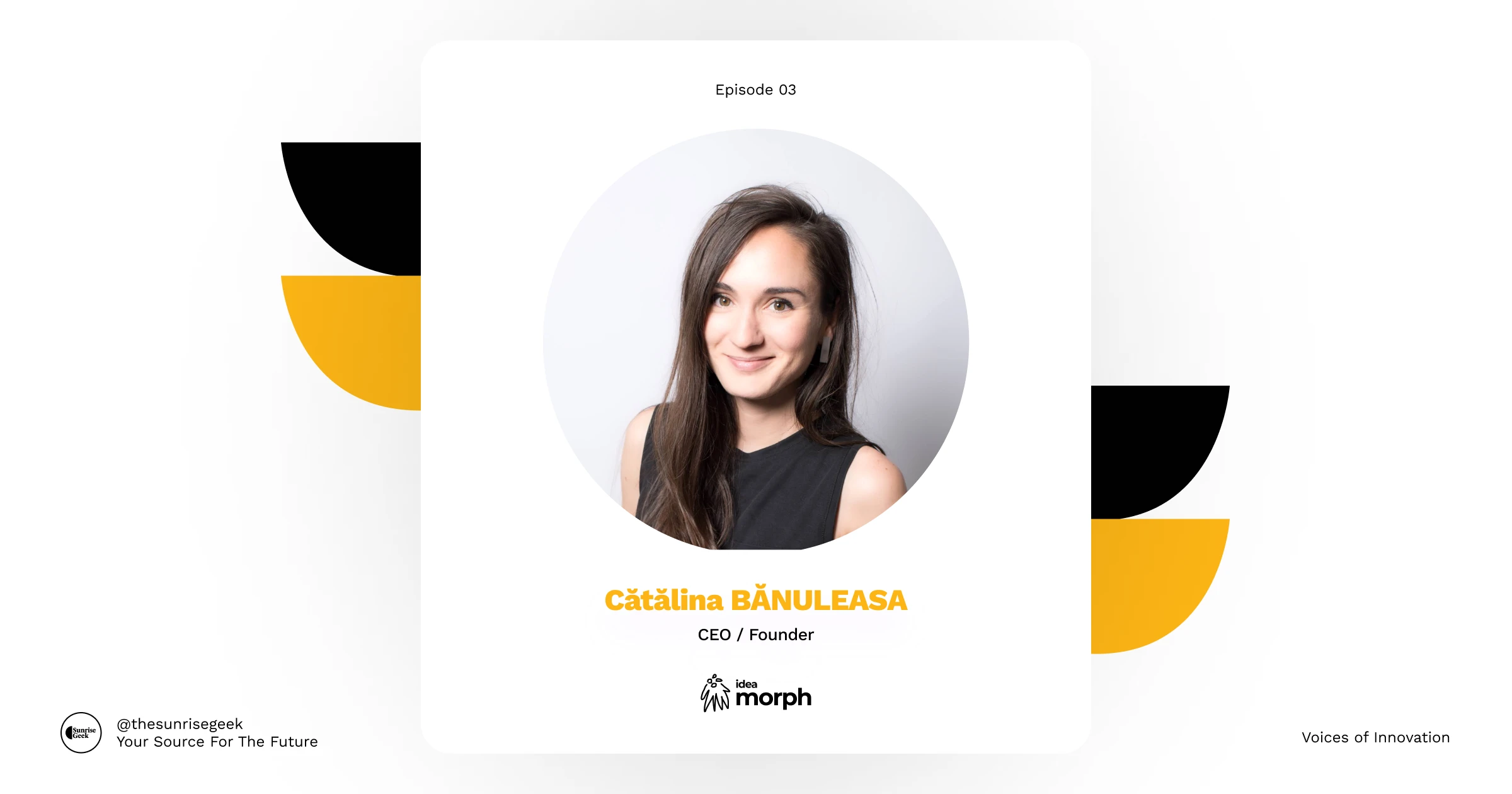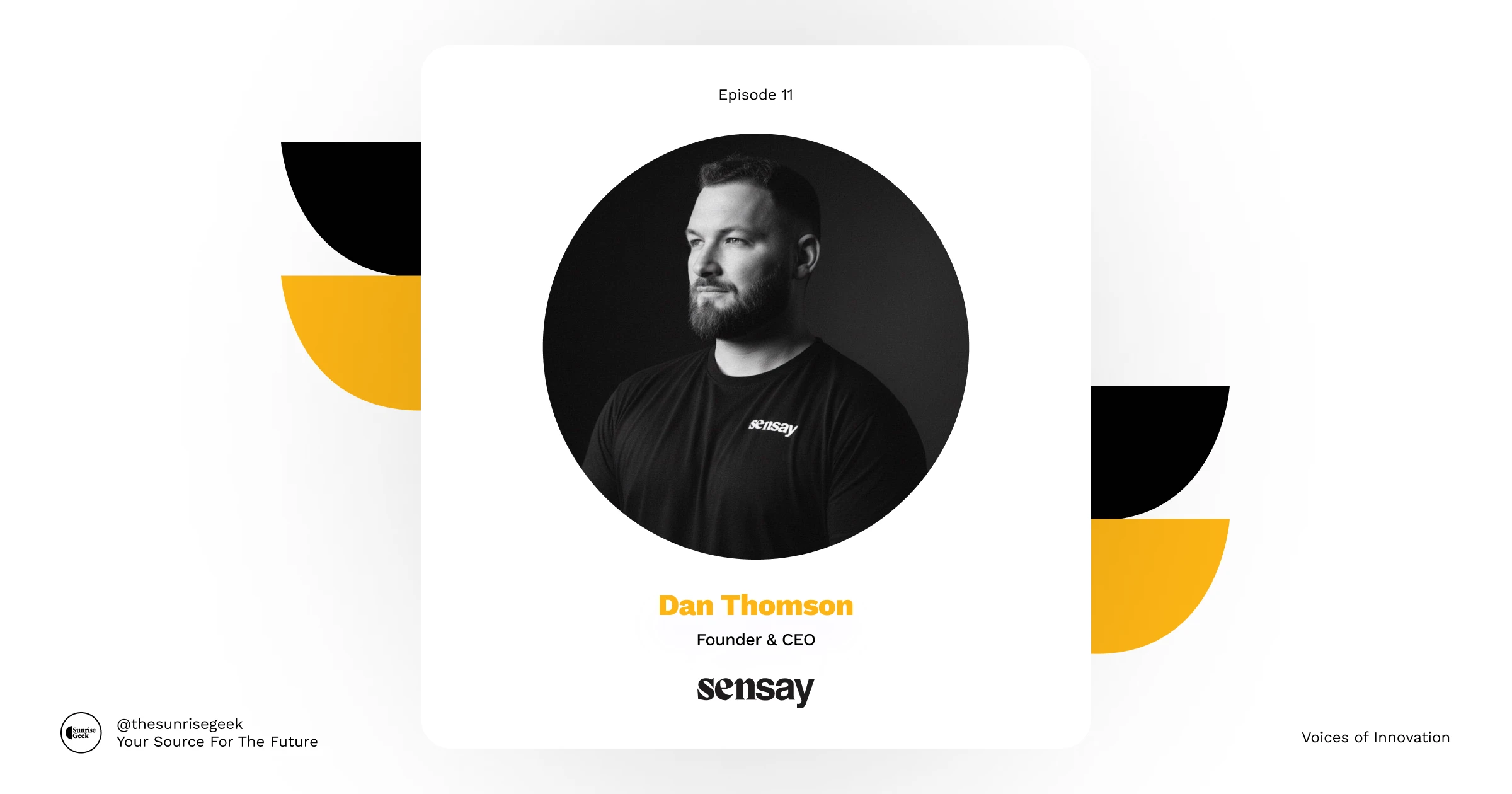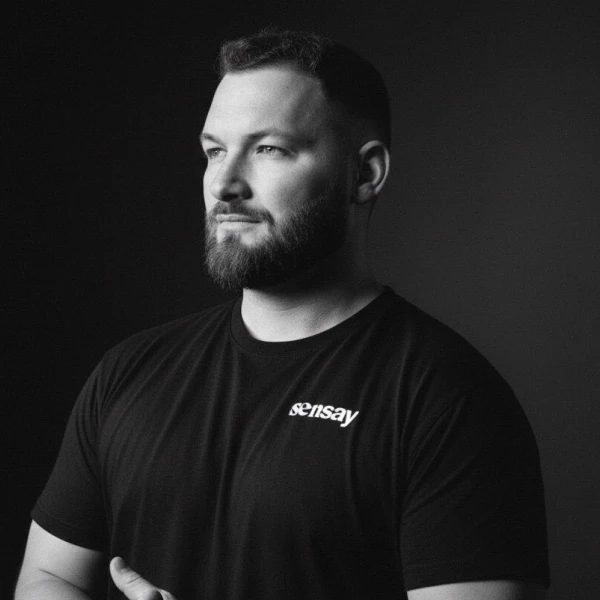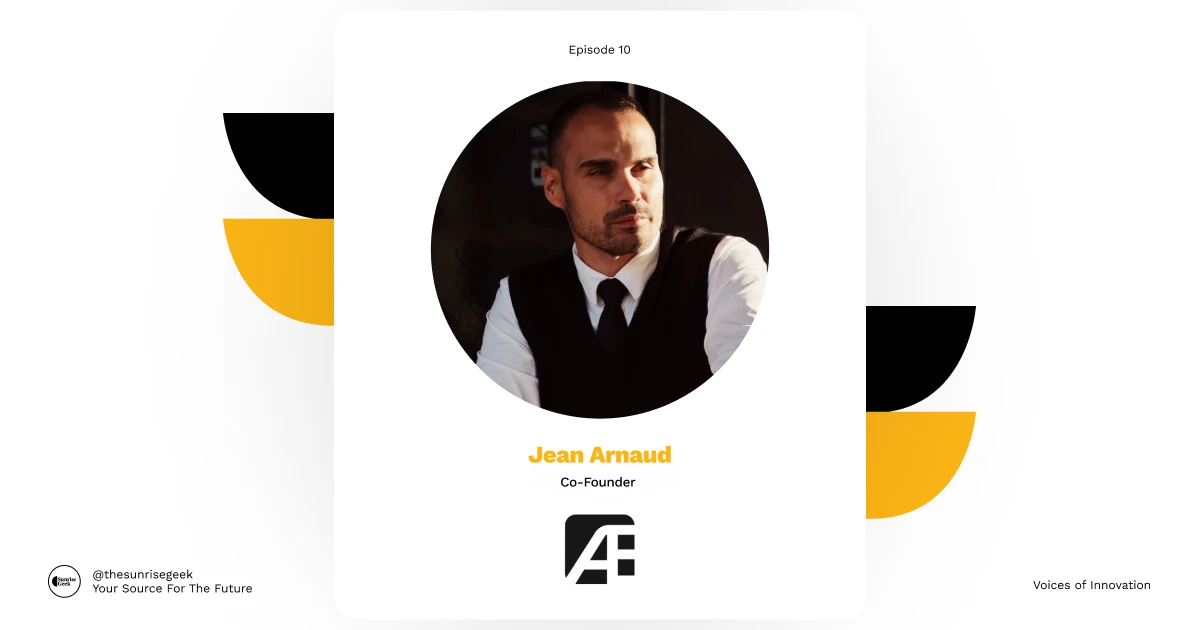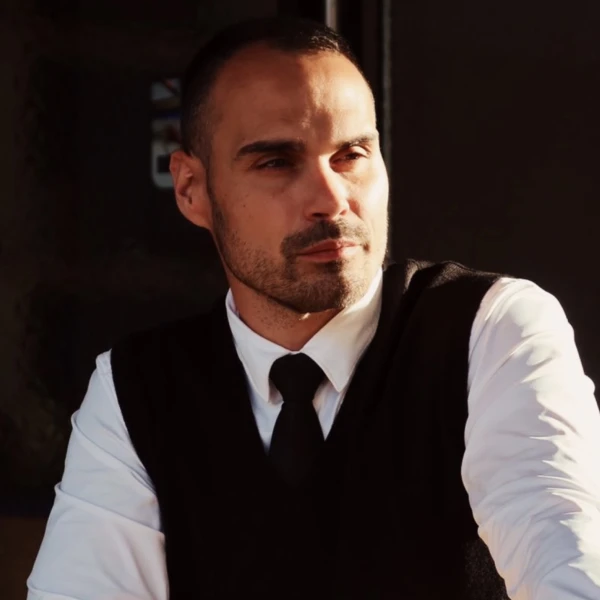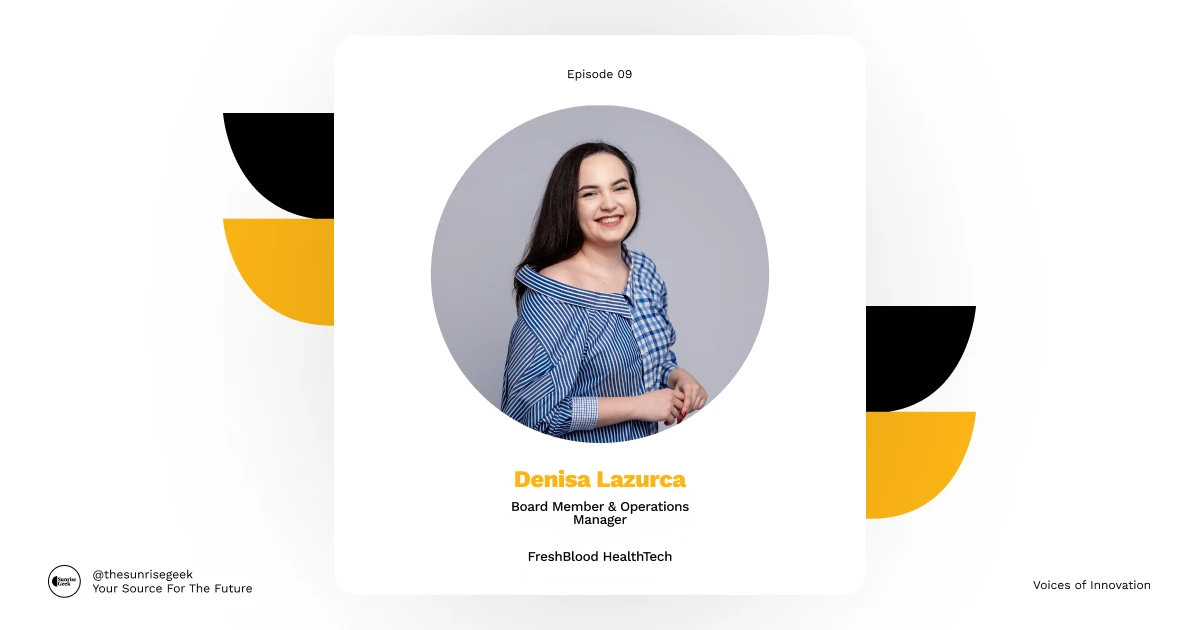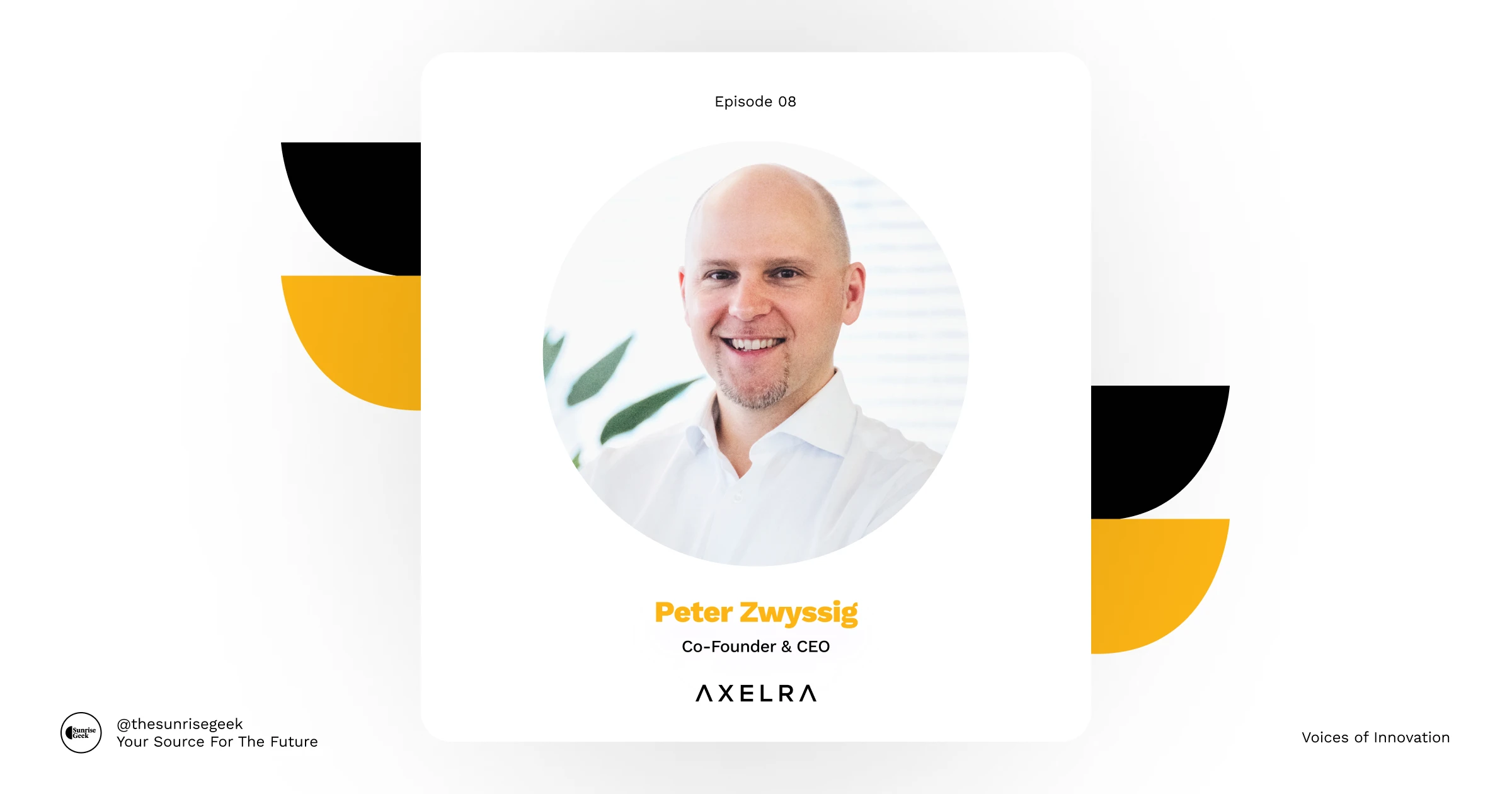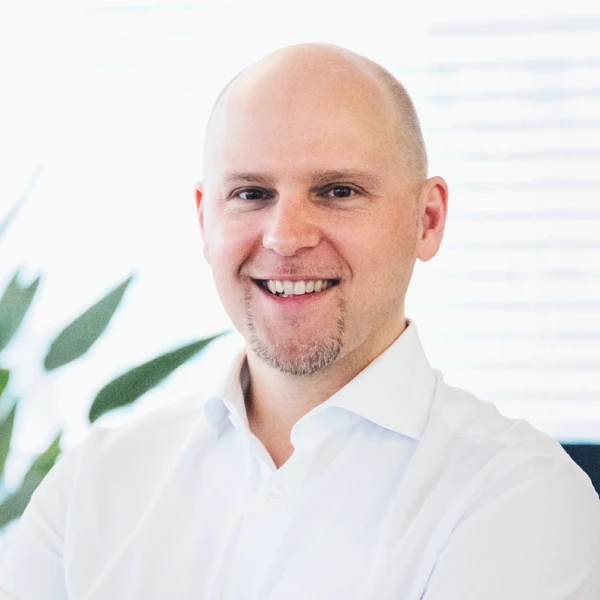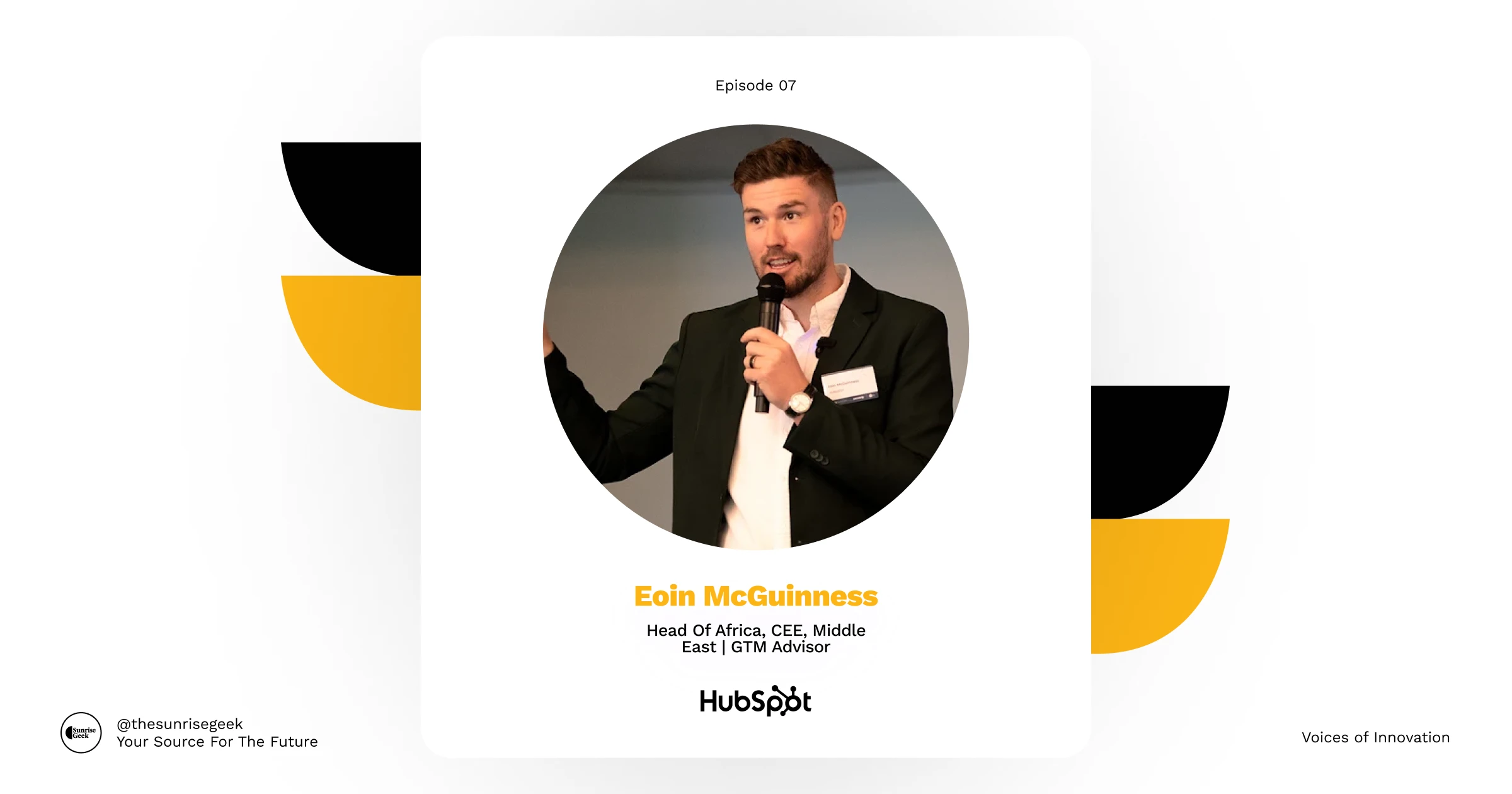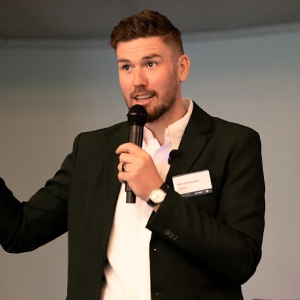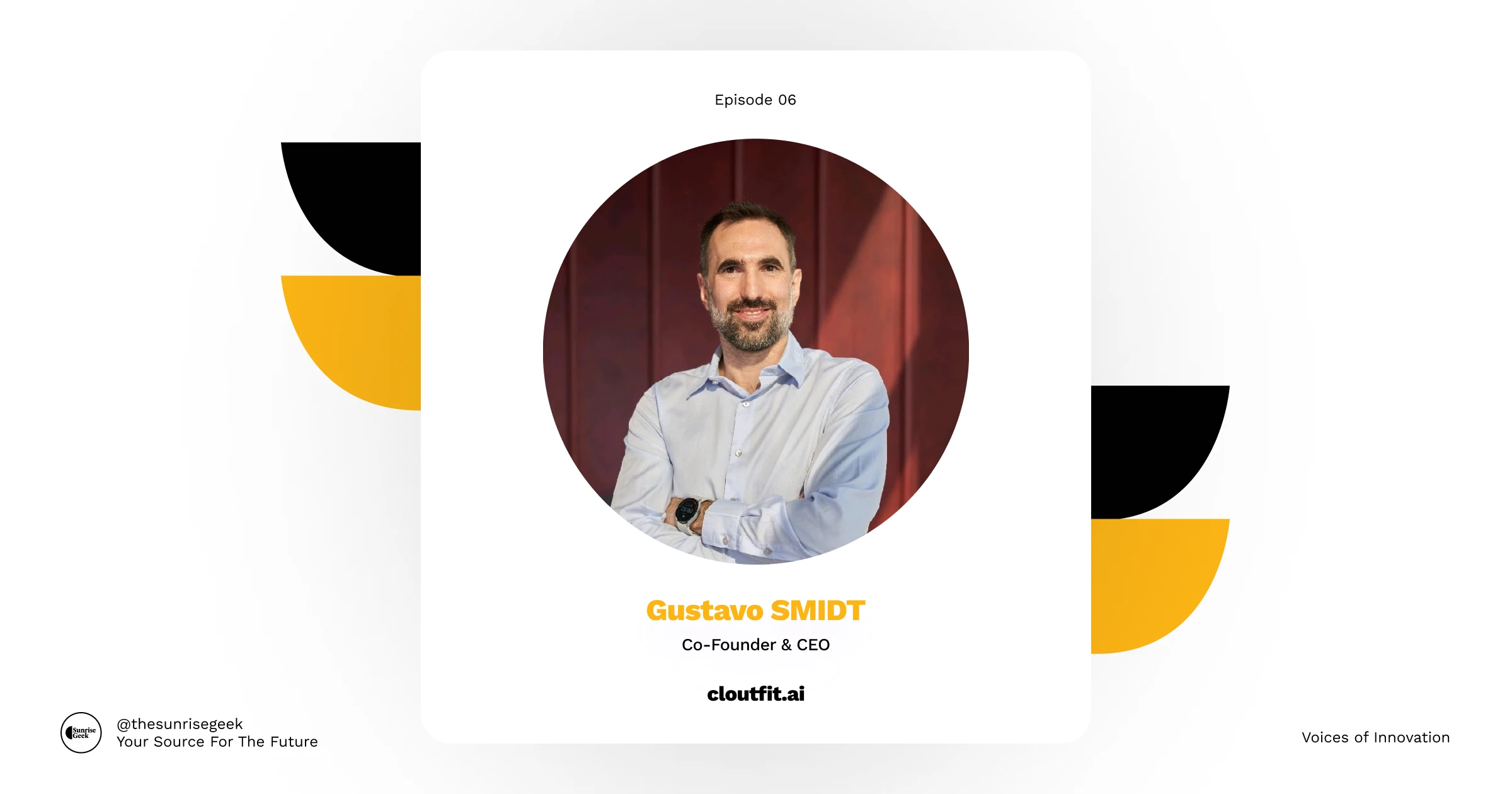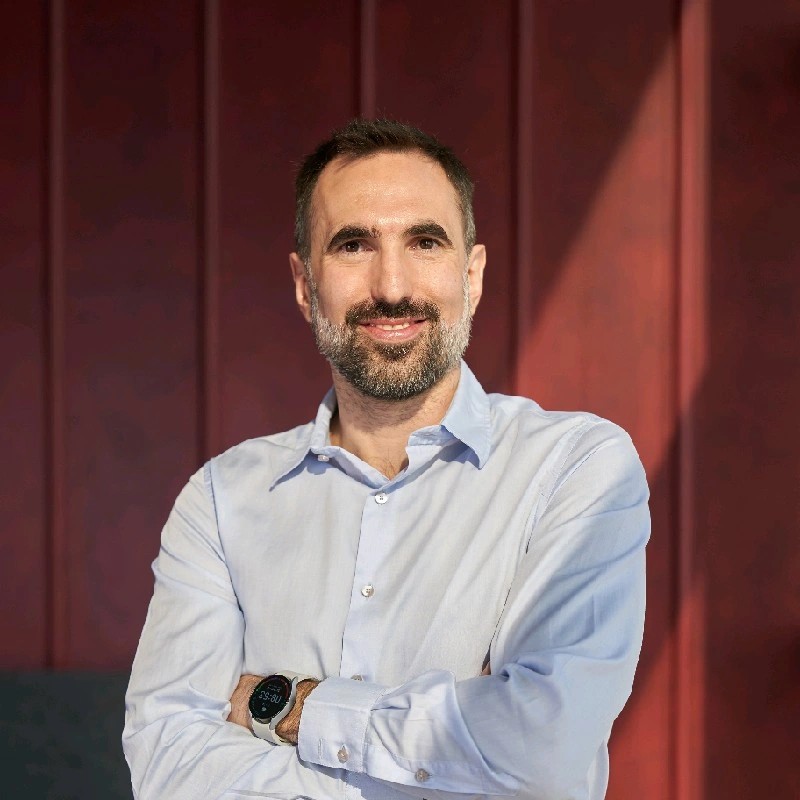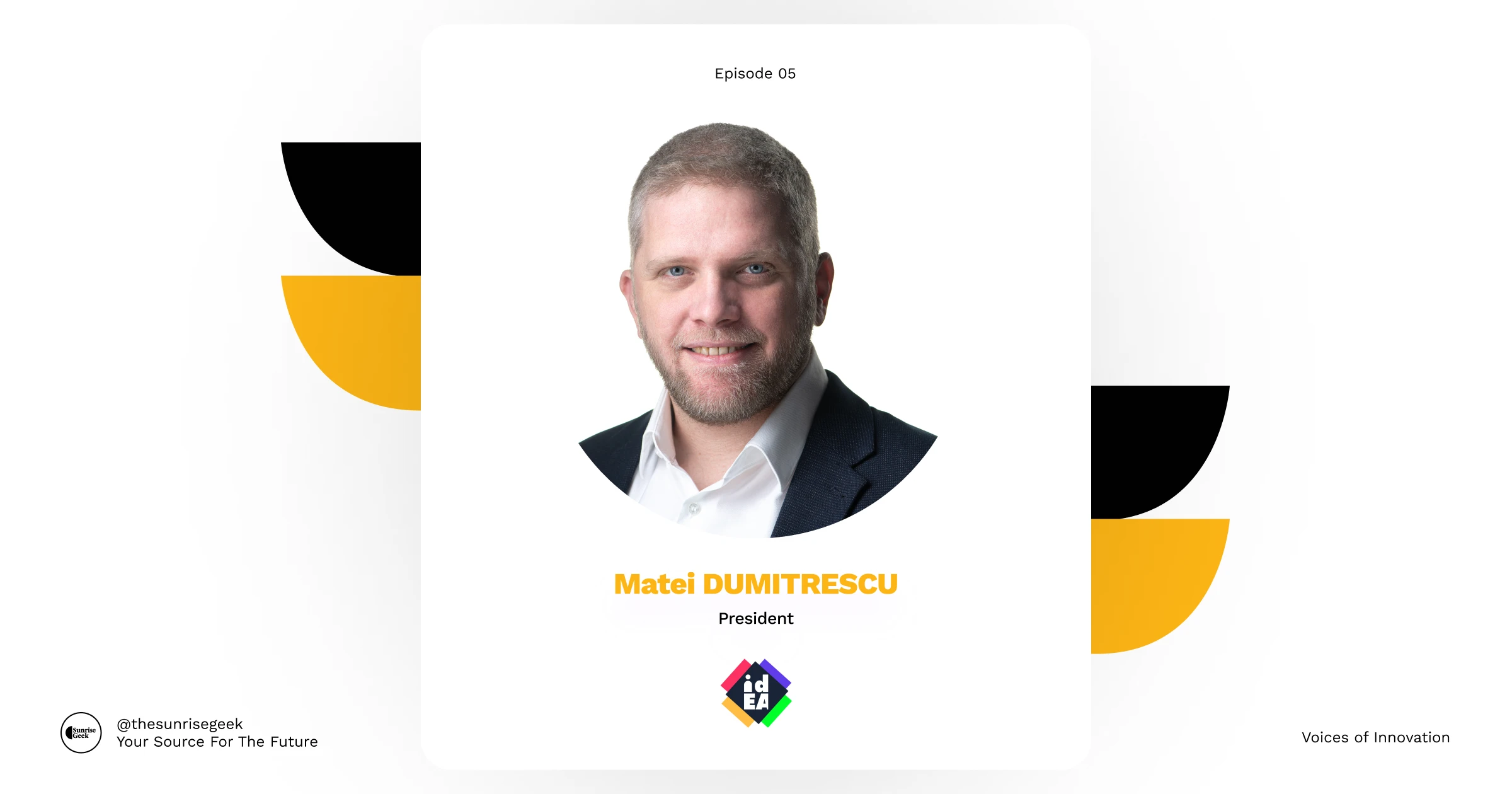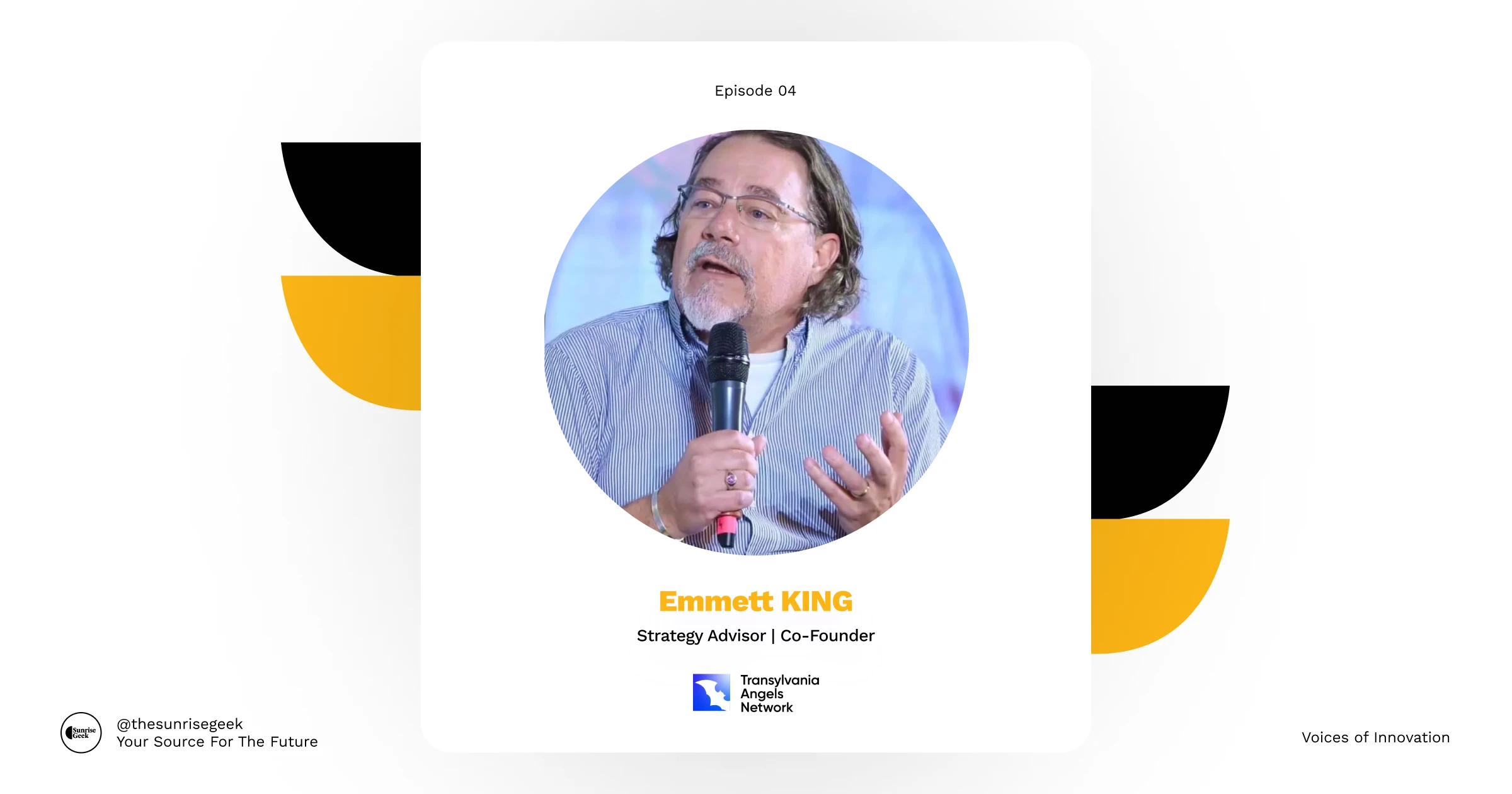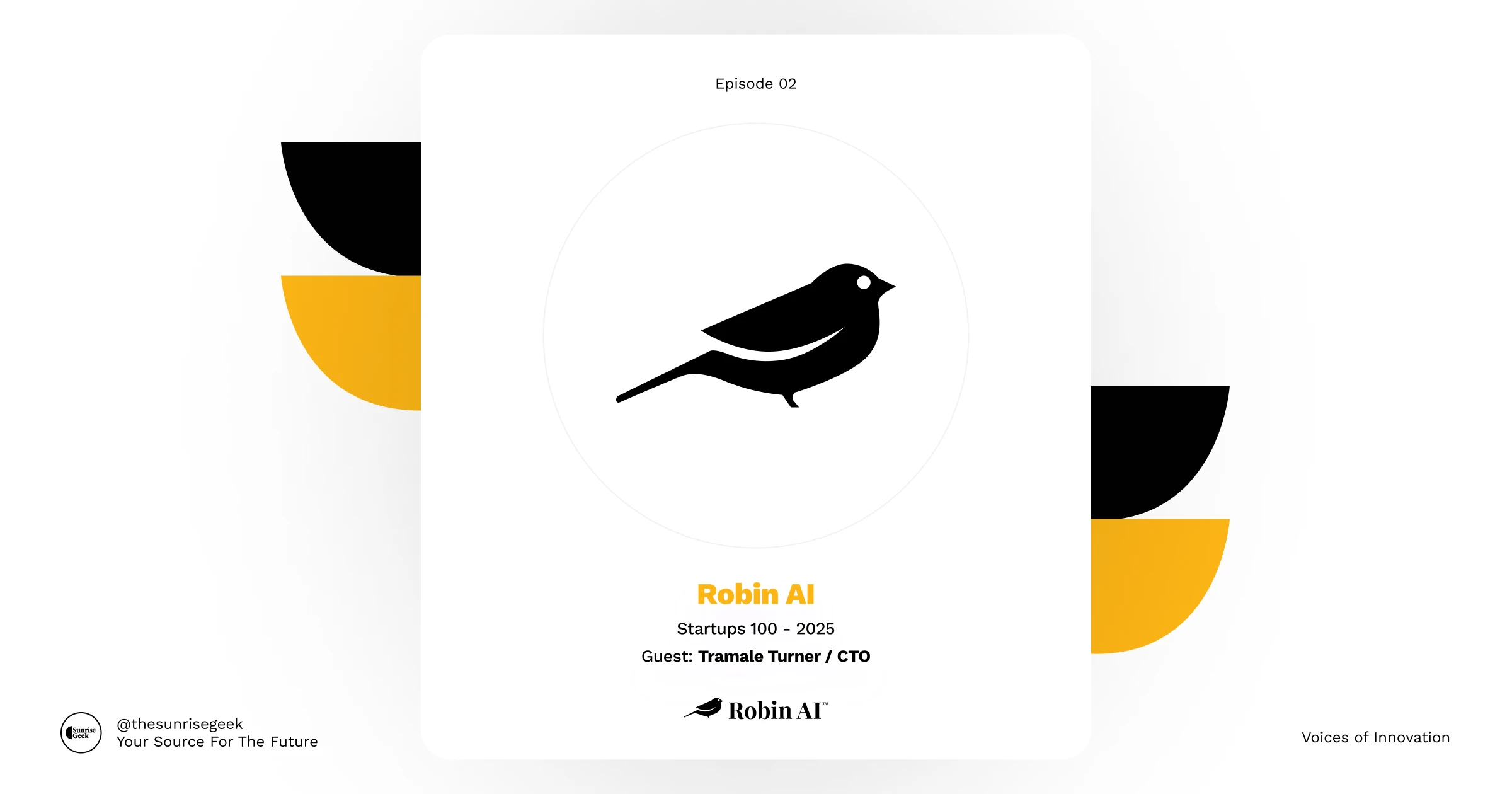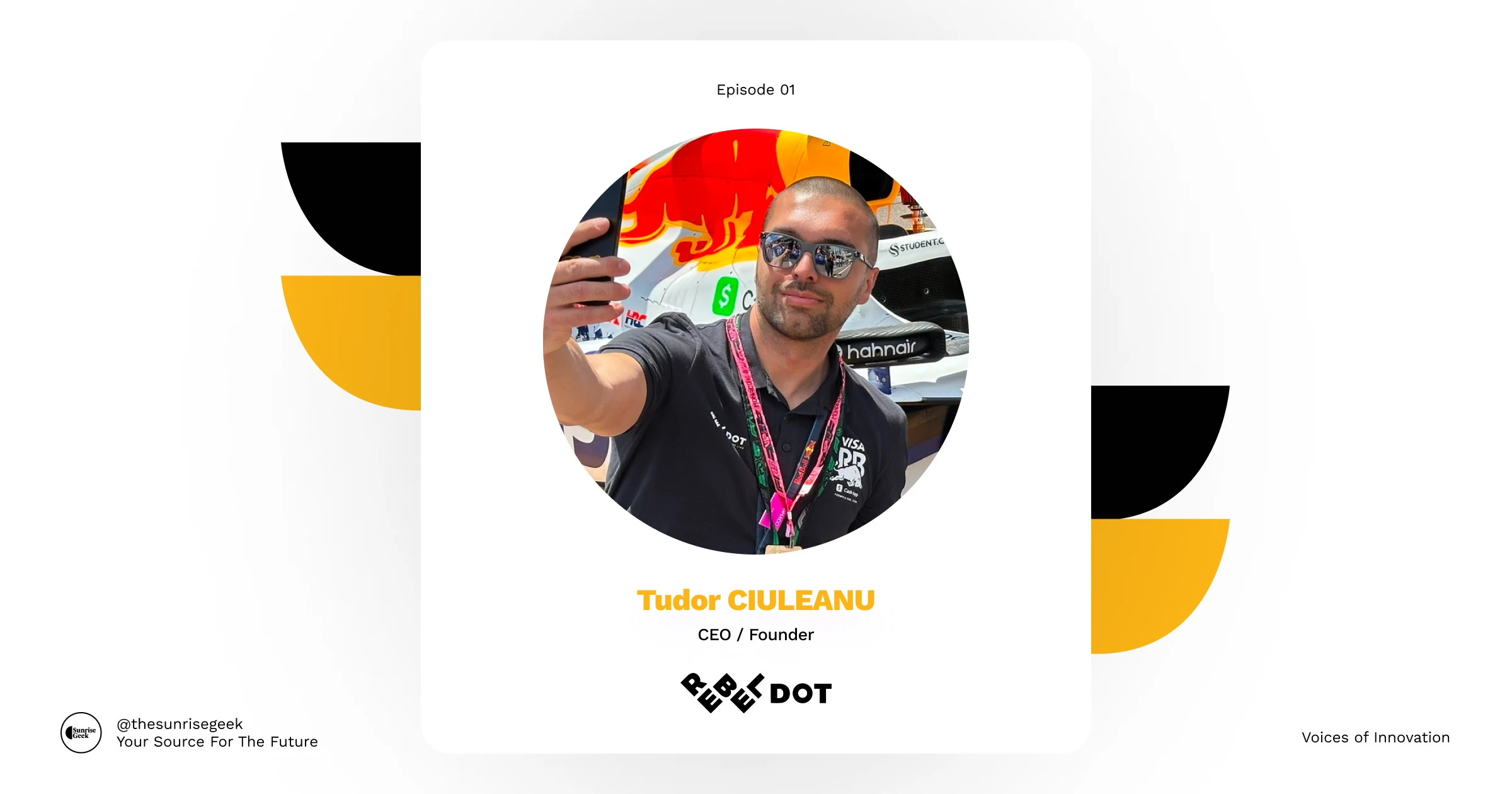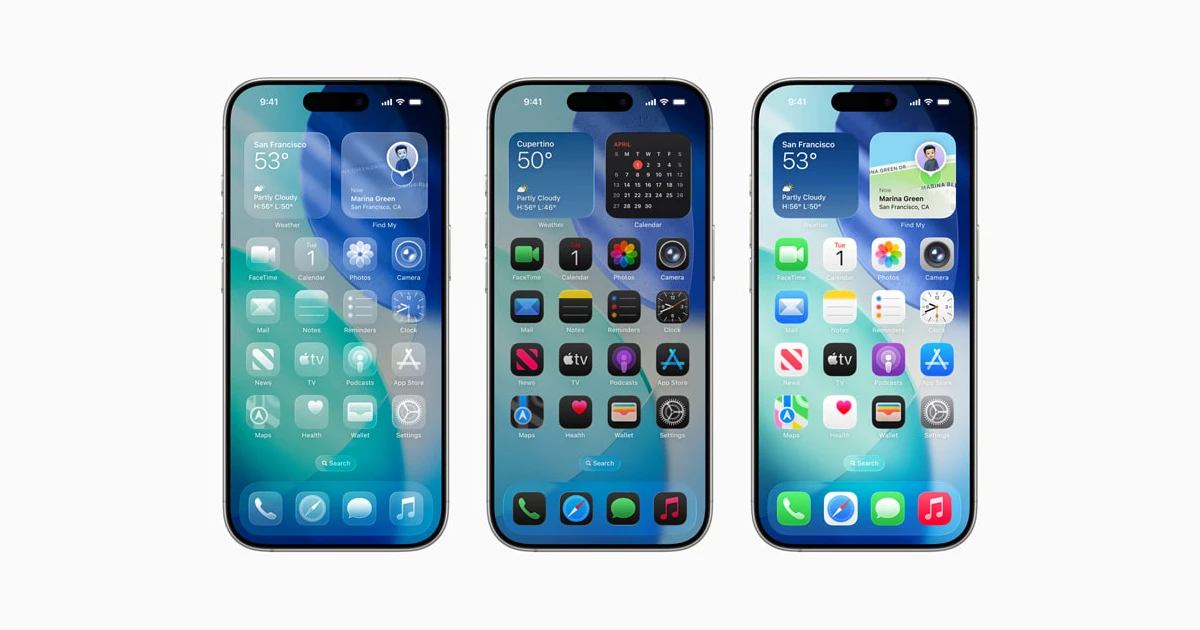Meet Our Guest

Alina Catalina Bănuleasa is the founder and CEO of Idea Morph — a Romanian startup revolutionizing online ideation and customer co-creation for major firms like Banca Transilvania, BRD, and Salt Bank
Some of us just don’t “feel creative enough to speak up.” This is the realization that led to the creation of IdeaMorph. A startup that was not born out of complex ideas exposed on spreadsheets, but rather out of solving a problem.

The Founder: From EA to IdeaMorph
Before IdeaMorph was created, Catalina Banuleasa, the founder, was a UX designer who worked at companies such as EA Sports and Google. However, going back in 2017, before building the company, she also co-founded a boutique consultancy. The mission? To find and create innovative ideas, not just another corporate buzzword.
“Basically, we try to help companies create better products. Faster. Not in two years, but rather in three months," she explained.
When COVID hit, the first budgets that were cut out were those allocated to consultancy budgets. Yet, next, she launched a hybrid education and consulting company named The School of Design. For this project, Catalina looked for pairing students with real-world challenges that were hitting the local market. But, most importantly, the idea that stuck in her head was: How do you unlock creativity in everyone?
“Innovation Doesn’t Happen with Low-Hanging Fruit”
Her experience proved that people, especially the quiet and technical types, have tons of ideas. They just don’t always feel “creative enough” to speak out loud. “There are the technical people who have a lot of expertise and can come up with a lot of solutions… It's just that most of the time they don't consider themselves creative people.”
So, the whole point was to democratize ideation. They needed a tool where they could work anonymously, individually, and feel safe. The pressure that would have existed before in meetings and brainstormings was cut out of the process, and people actually had more ideas to say.
“People were so happy after generating ideas and seeing how many ideas they generated… It's very different than the usual brainstorming where only the extroverts talk,” she mentioned.
After this, someone asked the inevitable question: Why not build a product around this?
From Consultancy to Startup: Enter IdeaMorph
One of Catalina’s mentors asked her, “You only have an amount of time that you can sell… Why don't you build a product that takes the process that you have and turns it into a tool?”
By 2023, she finally opened the door. And this is how IdeaMorph came to life.
IdeaMorph is a platform that can build and scale the power of workshops and help deliver ideas and innovation. It didn’t create something new, but it perfected a process by making it smoother, smarter, and switching the focus from the loudest voices in the room to everyone. And, when it comes to its name, it speaks for itself, easy to understand what they do.
Silicon Valley, but Make It Real Life
If you think that running a startup is all TED Talks and meetings, reality will hit you fast. When asked what the challenges that this field has to offer, she responded sincerely:
“Everything is a challenge. Hanging on to daily is also a challenge. You have daily roller coasters”. She also puts an emphasis on how startup founders and entrepreneurs sound, enjoy the moment, and the success they receive, “Because in the next 10 minutes, the other side of the coin will reverse and will tell you that there's also a lot of challenges that come with that.”.
An example that Catalina highlighted was the moment they received an Innovation Norway Grant for 200k. “We were like, whoa, we have money. And then the next 10 minutes after, you know, opening a bottle of Prosecco and enjoying it, we were okay, we need to find financing to ensure our cash flow.” The grant offers a reimbursement after you invest and make expenditures on the money you first need to have.
In managing a startup, “finding the right people” is a key ingredient that is most of the time overlooked. Catalina explained that “there's been a series of amazing people that were part of the team, and then because of different ways of working, because of different views, different
perspectives” ended up leaving the company.
So, as an entrepreneur, you need to adapt and work to find the right match for both your employees and your company’s culture, in order to make it work.
IdeaMorph Powerhouse
One of the founders’ superpowers seems to be the momentum. She has been the person who keeps the ball rolling, is the one who starts things, relies on people, and gets the job done.
“I have a capacity to start things from scratch and make it happen,… I think it’s in my DNA to bring people, align people, just take the ball and do something with it," she explains.
She thinks of the company as more than a product; it is a belief system. In this belief system that she built for IdeaMorph, good ideas don’t just belong to “creatives,” they belong to anyone when given the right space, the right prompts, and a bit of trust.
Remote Work is Here to Stay
Even though remote work might be considered by some a trend, for the CEO of IdeaMorph, remote work is a shift we can’t undo. “Once people experienced remote work—more time with family, living where they want—it’s hard to go back,” she mentioned.
And, with the growth of remote working, we can also see a growth towards tools that prepare and nurture such an environment. “We were all forced to learn how to work online. Now, it’s second nature.”.
“Tools like IdeaMorph help teams ideate faster and more often, no matter where they are,” she explains. “The more you do these creative exercises, the more your innovation muscle grows.”, also adds, “Your customers don’t live in your office. With IdeaMorph, we once got 900 ideas in one hour.” This is how potential is not going to waste.
Truth or Myth: Design Thinking Edition
As a former product and innovation consultant designer herself, when it comes to design thinking, she has heard it all. Yet, the most common misconception that she mentioned in the interview is “People think it’s just post-its—and that it doesn’t work”.
She goes further into elaborating that teams often give up too soon. “Design thinking is like baking croissants. You can’t freestyle. You need to follow the recipe – all the way to the end”.
As with everything in life, when it starts, it’s all fun and games, but when the project starts to get rough, this is when “they say it’s not working. But the truth is, they just stopped”.
Catalina puts further a new perspective where the real challenge is when the real discomfort comes when we don’t know and have all the answers. We all start like real design thinkers in our childhood when we “play, experiment, fail, and try again. Adults lose that because we’re taught to be right.”
She also pointed out her transformation as she mentions, “I used to hate when people changed my ideas. I’d shut down. But once I started accepting input, I realized: it’s better. It’s less stressful. You don’t need to be the master of all answers.”.
Another design myth that she debunks is that design is more than pretty looks. “It’s about how the idea was formed, how it was executed, and how relevant it is to today’s digital world”. This has also played an important role in the process of judging the works from the European Design Awards, as she is one of the jurors.
On Failure and Letting Go
One of the biggest lessons the CEO of IdeaMorph has learned is the meaning of letting go when it is necessary. Founders tend to get deeply involved in their work, and you can push through anything. But, an important lesson that she mentions is that some decisions need to be made faster.
Delays created frustration, drained energy, and made it harder for both parties to move forward. And while this is a common story — so many founders talk about losing friendships or relationships along the way — “it still feels like failure when it happens to you”. You lose not just a partner, but someone to lean on, someone to share the burden with. Suddenly, you're building alone again.
But the lesson stuck with her: Don’t postpone the inevitable. Trust your gut. Act quicker, with kindness but with clarity.
The Networking Culture
When asked what she would change in the tech industry, the CEO of IdeaMorph didn’t hesitate: the networking culture. “In Europe, we’re still in the kindergarten... people don't understand how beneficial it is to support the ecosystem,” she says. “In the US, it's ‘Bam, you're cc'd!’ They expose you, promote you, introduce you—and they don’t feel any pressure doing it.” For her, fostering a culture of active, generous connection could unlock the support startups need to grow and thrive.
The Final Advice to Founders: Find your Fun, Find your Why
“Just have fun. It’s going to be hard. But believe in something meaningful. Something you want to solve.” In her career, she’s seen too many founders chase ideas they aren’t emotionally connected to—and burn out fast. “It’s more important to believe in a problem... because how you solve it will change. But if you believe in the problem, that will keep you going.”
Adding that in true IDEA Morph style, she adds:
“Try to make something meaningful that you believe in—because otherwise, there are so many moments in which you’ll want to quit.”




